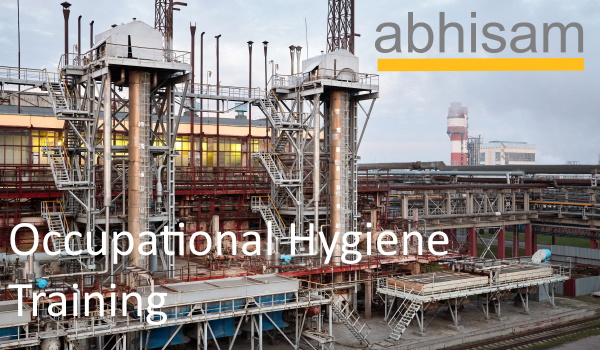Why is Occupational Hygiene training important?
Let us first see what we mean by Occupational Hygiene. Once we understand it better, it then becomes clear why Occupational Hygiene training is important for Occupational Health and Safety professionals.
What is Occupational Hygiene?
Occupational hygiene is the study of how to keep workers healthy and safe on the job. Occupational hygienists work with employers, employees, and other people in the community to prevent occupational illness and injury. Note that Occupational Hygiene is also known as Industrial Hygiene and practitioners are also referred to as Industrial Hygienists or Industrial Hygiene professionals.
What do we mean by Occupational Health and Safety?
Occupational Health and Safety is a set of practices that help protect workers from injury or illness. The goal is to create a safe environment for all employees while they are working. Occupational Hygiene is the study of how to keep workers healthy and safe on the job. . Occupational hygienists work with employers, employees, and other people in the community to prevent occupational illness and injury.In order to achieve this goal, occupational hygienists can recommend increased safety measures for employees as well as consult with employers about ways to improve working conditions. The result of their efforts is an improved chance at a healthy and productive workforce.
Occupational Hazards in workplaces
Modern workplaces may have several hazards such as Physical hazards, Chemical hazards, biological hazards, ergonomic hazards, radiation hazards and psychological hazards. The anticipation, identification, evaluation and mitigation of these hazards is done by Occupational Hygiene professionals, who may also be referred to as Industrial Hygienists or Industrial Hygiene professionals.
What are the Dangers of Poorly Maintained Workplaces?
Poorly maintained workplaces are a major concern for employers and employees alike. Poor air quality, improper lighting, and lack of ergonomic furniture can lead to an increase in health problems for employees, as well as decreased productivity.
Poorly maintained workplaces can lead to increased health problems for employees such as asthma or allergies, decreased productivity, and higher rates of absenteeism. The risks that come with poor work environments are not worth the benefits they provide.
How to Prevent Illness & Injuries in the Workplace?
There is no such thing as a perfect workplace, however properly trained Industrial Hygiene professionals can make it an almost perfect workplace. This is great for employers also as there is a less chance of them being sued by injured employees or fined by regulators. It is an the employers business interest to have an Industrial Hygiene professional on board who can anticipate hazards, identify hazards and evaluate them to mitigate their ill effects on workers.
What are the Benefits of Occupational Hygiene Training?
Occupational Hygiene Training (also known as Industrial Hygiene Training) enables Occupational Health and Safety professionals to manage hazards in the workplace and protect workers from the ill effects of these hazards.
How to Get Started with Occupational Hygiene Training?
If you want to learn about occupational hygiene, then you have several options. You can start by looking for training programs in your area. You can also attend workshops and conferences on occupational hygiene or read books on the topic. The best way is to take the free basics of Industrial Hygiene course from Abhisam. Since it is free to take, you can start immediately, no credit card required to sign up.
The best way to learn al about the subject and also get certified, is to enroll in the Abhisam Industrial Hygiene training online course. You can learn everything about the subject in an easy to understand manner, with practical examples and case studies. On completing all the modules you can take the associated exam, on passing you get certified as an Industrial Hygiene professional.



